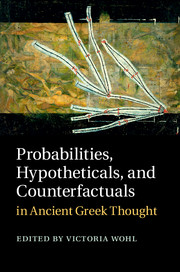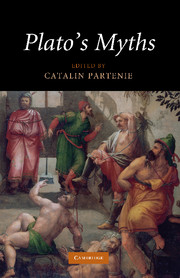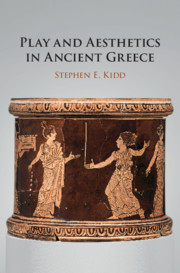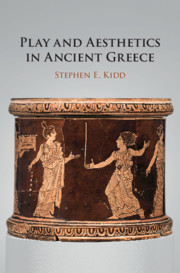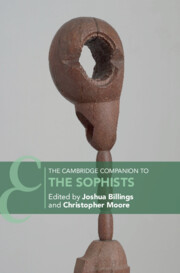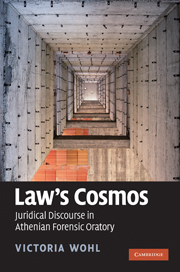Probabilities, Hypotheticals, and Counterfactuals in Ancient Greek Thought
This volume explores the conceptual terrain defined by the Greek word eikos: the probable, likely, or reasonable. A term of art in Greek rhetoric, a defining feature of literary fiction, a seminal mode of historical, scientific, and philosophical inquiry, eikos was a way of thinking about the probable and improbable, the factual and counterfactual, the hypothetical and the real. These thirteen original and provocative essays examine the plausible arguments of courtroom speakers and the 'likely stories' of philosophers, verisimilitude in art and literature, the likelihood of resemblance in human reproduction, the limits of human knowledge and the possibilities of ethical and political agency. The first synthetic study of probabilistic thinking in ancient Greece, the volume illuminates a fascinating chapter in the history of Western thought.
- The first synthetic study of a mode of thought ubiquitous in ancient Greek philosophy, science, literature, and art
- Traces probabilistic thought across a variety of ancient disciplines and discourses
- Examines a seminal mode of ancient thought, and its relation to modern thought
Product details
No date availableAdobe eBook Reader
9781139990592
0 pages
0kg
8 b/w illus.
Table of Contents
- Introduction: eikos in ancient Greek thought Victoria Wohl
- 1. Eikos arguments in Athenian forensic oratory Michael Gagarin
- 2. Eikos in Plato's Phaedrus Jenny Bryan
- 3. Aristotle on the value of 'probability', persuasiveness, and verisimilitude in rhetorical argument James Allen
- 4. 'Likely stories' and the political art in Plato's Laws Ryan K. Balot
- 5. Open and speak your mind: citizen agency, the likelihood of truth, and democratic knowledge in archaic and classical Greece Vincent Farenga
- 6. Counterfactual history and Thucydides Robert Tordoff
- 7. Homer's Achaean wall and the hypothetical past Karen Bassi
- 8. Play of the improbable: Euripides' unlikely Helen Victoria Wohl
- 9. Revision in Greek literary papyri Sean Gurd
- 10. Likeness and likelihood in classical Greek art Verity Platt
- 11. Why doesn't my baby look like me? Likeness and likelihood in ancient theories of reproduction Daryn Lehoux
- 12. Galen on the chances of life Brooke Holmes
- 13. Afterword Catherine Gallagher.

